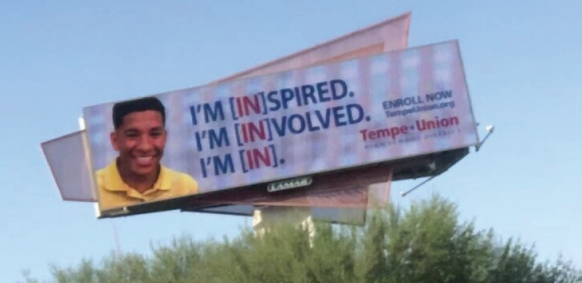
No, it’s definitely not your parents’ generation’s drug problem. With today’s kids experimenting with drugs and alcohol earlier than ever, one Tempe school district isn’t waiting around to take action.
Nor is one enterprising teen at his own high school, who somewhat remarkably has risen to prominence as a go-to resource for other students seeking guidance with their own substance-abuse issues.
Brach Drew, 17, says it’s the power of peer influence that has provided him a platform to help others, and the same phenomenon that makes real change happen for teens who reach out for help.
“It seems like if kids hear advice from some authority figure about the dangers of drug use, they tend to rebel,” says Drew, whose leadership at Marcos de Niza High School motivates many of his fellow students to seek him out when they’re troubled or confused.
“When a friend approaches me about the topic of drugs or alcohol, I try to respond in as informal a way as possible, so they’ll know I’m someone they can open up to in atmosphere of trust,” Drew explains.
“One of the best things I can offer, I think, is to tell them about truly positive things they can substitute for choices that eventually are going to hurt them. It’s so much better to suggest, for instance, ‘Let’s go help out somewhere; go to a community center, something that makes you feel just as good, or maybe better.’”
Sometimes, Drew notes, the offer of positive, healthy alternatives isn’t accepted, and this student peer leader asserts more forceful action is necessary to break through resistance.
“Sometimes it’s necessary to just be brutally honest—in a caring way,” Drew advises. “I might just say, ‘Yeah, alcohol or a drug makes you feel good right NOW, but over time that good feeling is going to get replaced by some pretty bad stuff.’ And I think I reach other students that way.”
Does Drew feel a burden or prideful that his fellow students have elevated him into a leadership role?
“Gosh, no,” he’s quick to say. “My parents have always been very accepting of all kinds of people, no matter what their differences, and taught me that.
“So I feel like it’s an honor when one of my classmates comes to me. When you feel troubled or depressed and there’s no one to confide in, you get all bottled up inside. I’m thankful I can be there at moments like that.”
Even if other students don’t come to him directly, Drew says he tries to be proactive.
“I don’t like it if not everybody’s having fun at a get-together,” he laughs, “and I just go over and pull them in.”
His attitude, he declares, is a fundamental part of his experience at school.
“One reason I’m so sure his school’s substance abuse-prevention program is going to go great,” he says, “is it’s happening HERE. This school is such a wonderful place, accepting of everybody—kids, teachers administrators—it’s unique that way. We can’t help but succeed.”
While Drew seems to be doing just fine in his own advisory role, his work is further advanced by a collaborator with one thing Drew doesn’t yet have: professional creds and a nice chunk of state funding.
Joshua Azevedo, licensed counselor working with substance-abuse programming for the Tempe Union High School District, suggests his own efforts are being utilized with an even broader reach.
“The average age of onset of teen alcohol and drug use is 12,” says Azevedo. “Fortunately, a new grant from the Governor’s office will help all of us involved attack this issue more effectively than ever.”
Azevedo refers to a grant benefitting all schools in the Tempe Union district, funded by Arizona Governor Doug Ducey’s Office of Youth, Faith, and Families that aims “to prevent the onset of underage drinking, marijuana use, and prescription drug misuse and abuse.”
The grant is part of a $3.6 million high school drug prevention fund, and with kids coming back for the new school year, Tempe Union leaders predict the money will enable the district to deal with teen drug use in unprecedented and positive ways.
“This grant has just been such a change-maker for us, because it has allowed us to hire professionals to execute the program,” declared Jennifer Liewer, executive director of community relations for Tempe Union.
The district receives $450,000 yearly to operate the program.
Liewer says a major focus of the program is offering “positive activities” to TUHSD students as preferable replacements for drug experimentation.
“One slogan we use repeatedly,” says Liewer, “is ‘I’ve got something better.’ We want to offer them multiple positive activities, show them something better to do with their lives.”
Often students get involved when both they and their parents attend the workshops on prevention that Azevedo’s organization offers, say district officials.
“It’s sometimes in these meetings where families see they’re not alone, and they learn effective strategies for moving families and the kids in a more positive direction,” Azevedo says.
Azevedo is the founder and program director of Tempe’s Pathway Drug, Alcohol, and Substance Abuse Treatment and Rehab Center, which contracts with Tempe Union in administering the district’s teen substance-use-prevention program.


